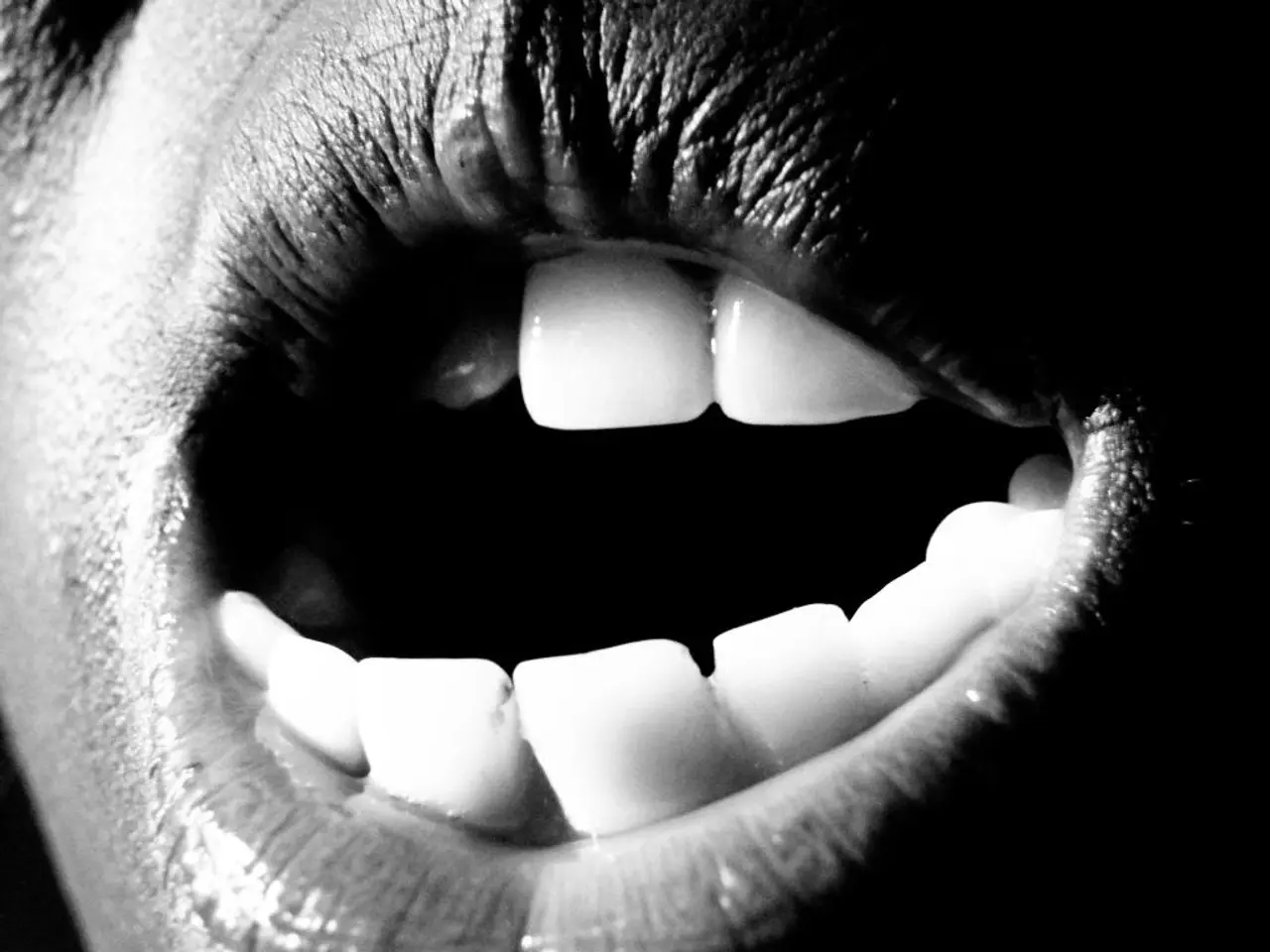Mouth area breakouts: Understanding causes, prevention methods, and treatment options
Acne around the mouth is a common concern for many individuals, affecting millions in the United States. Here's a guide to understanding the causes and prevention techniques for this skin condition.
Acne around the mouth can be caused by several factors. Friction and pressure from helmets, masks, or frequent touching and rubbing of the area can lead to acne mechanica, as dirty or unwashed equipment can clog pores and trap dirt and bacteria. Hormonal fluctuations, particularly related to menstruation, increase oil production and cause breakouts. Cosmetic and skincare products such as lip balms, toothpaste, shaving creams, and facial products can irritate the sensitive skin around the mouth. Mobile phones carry bacteria that transfer to the skin during phone calls pressed against the cheek and mouth, while environmental factors like pollution and high humidity can cause excess oil, sweat, and dirt accumulation. Stress, although not directly linked to acne, can indirectly contribute by increasing cortisol hormone levels, which stimulate oil glands and clog pores.
To prevent and manage acne around the mouth, individuals are advised to gently wash their face twice daily with a mild cleanser, avoid touching and rubbing the area frequently, keep helmets, masks, and phone surfaces clean, choose non-comedogenic, fragrance-free lip balms and skincare products, maintain a balanced diet and manage stress, and consult a healthcare provider or dermatologist for persistent or severe acne. Over-the-counter remedies containing active ingredients can help clear up minor pimples, and washing the face twice per day, especially after sweating, and always removing makeup before bed can also help prevent acne.
Using a gentle shaving foam or gel can reduce the risk of skin irritation, and cleansing the face before and after shaving can further reduce the chance of bacteria getting into the pores. Changing sheets and pillowcases regularly can help prevent bacteria from coming into contact with the face, and regularly changing razor blades and rinsing the razor after every stroke can help prevent bacteria buildup.
Acne around the mouth can be treated with over-the-counter and prescription medications. Speaking to a doctor or dermatologist for advice on effective treatment and management is important for anyone with concerns about acne around the mouth. It's also worth noting that hair products, cosmetics, and shaving products can clog the pores and lead to breakouts. Bacteria can transfer onto the skin from the hands, a phone, pillowcases, and makeup brushes, so regularly cleaning these items can help prevent bacteria from transferring onto the face.
In conclusion, by applying these strategies, many individuals can effectively reduce and prevent acne breakouts around the mouth. It's essential to remember that everyone's skin is unique, and what works for one person may not work for another. If acne persists or worsens, seeking professional advice is always recommended.
- Multiple factors can cause acne around the mouth, including friction from helmets, masks, or frequent touching, as well as the use of cosmetic products like lip balms and skincare products.
- Hormonal fluctuations related to menstruation can lead to increased oil production and breakouts, while environmental factors such as pollution and high humidity can cause oil, sweat, and dirt accumulation.
- Science has developed predictive remedies for acne management, such as over-the-counter medicines containing active ingredients and mild cleansers.
- In the realm of health-and-wellness, it's important to maintain a balanced diet, manage stress, and consult healthcare providers or dermatologists for persistent or severe acne.
- For people with psoriatic arthritis, ankylosing spondylitis, or diabetes, it's vital to consider their specific health conditions when choosing skincare products and treatment options to avoid potential side effects or complications.
- In addition to face washing, using a gentle shaving foam or gel, cleaning face and hair products, and changing sheets and pillowcases regularly can help reduce the risk of skin irritation and acne breakouts.
- Aq, aq-based skin-care products, or any skincare line related to water technology could potentially provide unique benefits for managing acne and maintaining healthy skin around the mouth.








